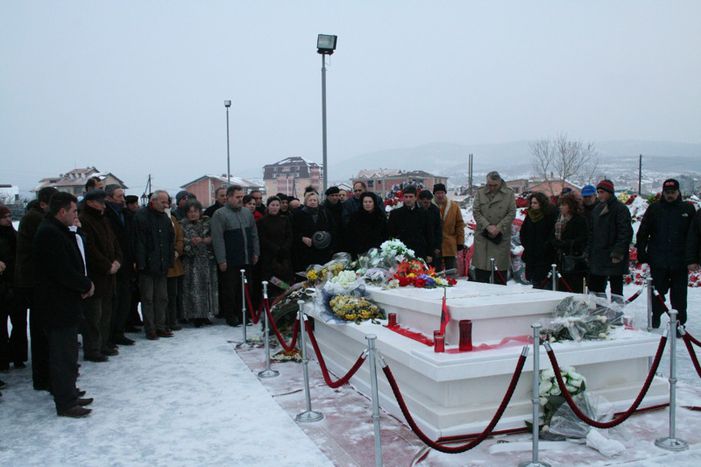
Could Kosovo join the EU?
Published on
Translation by:
 gaia manco
gaia manco
While the Balkan province is mourning the death of president Ibrahim Rugova, the issue of its independence from Belgrade is still on the UN negotiating table
Ibrahim Rugova’s recent cancer death turned the lights on this autonomous province of the Balkans, still part of Serbia-Montenegro. Not only because with the former president of Kosovo, who had been in power since 2002, an important political leader disappears. He was known by many as the 'Gandhi of the Balkans' thanks to the non-violence of his independentism. But, also because the first meeting on the future of Kosovo between the representatives of this autonomous region, the Albananian majority and Belgrade should have opened in Vienna this week, under UN’s aegis.
Autonomy or independence?
On one side the Albanese majority in power in Kosovo pushes for independence from Belgrade and, in the end, for the enfranchisement from the actual protectorate exercised by the UN according to resolution 1244. On the other side, the Serb president Boris Tadic and the PM Vojislav Kostunica propose 'something more than autonomy and something less independence.' It is hard to understand what they mean. The two leaders are probably trying to start negotiate to leave kosovars a wide administrative freedom, without affecting the rights of that around 10% of Serbs who are still living in Kosovo.
International Community split
The issue cannot be solved without the international community’s green light. But now as never before the concept of 'international community' is a confused one. The US, for example, seems to latently encourage independence but the UN hesitate because they know that a choice like this might encounter a Chinese and Russian veto. The two mega-states never liked the splits in the area and are never keen to encourage the independence of small states for fear of re-errupting their own problems, for example in Chechnya or Tibet.
A resolution taken without the UN will declare another failure of the organisation in diplomacy and international law. The EU, which from 1999 gave 1.6 billion euros of aid to Kosovo, is split on the issue of independence. An option circulating in Brussels is conditional independence; full autonomy for the Kosovo government but under direct control of the international community which could stop authoritarian and violent action. This would be a sort of 'Bosnia model' where there is the possibility of intervention on local government in case of violation of Dayton Agreements. Analysts are divided as to whether this model could be applied to Kosovo, or if it is simply being opted for as the only solution to a diplomatic fix.
In the meantime the European enlargement commissioner, Finland’s Olli Rehn, has talked about an 'eventual integration in the European Union' as a perspective to offer to the western Balkans. It is still unclear if such a move were to occur, whether Kosovo would enter as a province of Serbia-Montenegro or as an independent state.
Serb minority at risk
Massacred by the police and by the Serb-Orthodox minority, the Muslim Albanians compose 90% of the population of Kosovo. Many were saved by the UN armed intervention in 1999. Although ethnic cleansing stopped, violence against the Serb minorities has multiplied. There 28 Serbs were murdered in Kosovo in 2004. Serbs now have to live in protected areas, under the wing of the international community. They cannot leave without risking death.
Translated from Il Kosovo nell’Ue?


